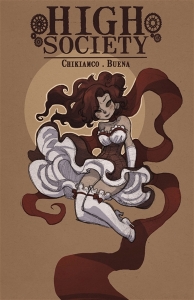Category Archives: Frida Reviewed
Generation by William Knight (2011)
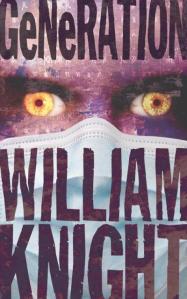 (Smashwords not available) / Amazon / Author’s Site
(Smashwords not available) / Amazon / Author’s Site
2/5 stars
Description:
Journalist Hendrix ‘Aitch’ Harrison links bodies stolen from a renowned forensic-research lab to an influential drug company. Aided by Sarah Wallace, a determined and beguiling entomologist, he delves into a grisly world of clinical trials and a viral treatment beyond imagining. But Aitch must battle more than his fear of technology to expose the macabre fate of the drugged victims donated to scientific research.
In 2001, scientists isolated the gene for regenerating damaged organs from the DNA of a South American flatworm. Within five years it had been spliced into the chromosomes of a rhesus monkey, transported through the cell walls by a retro-virus denuded of its own genetic material. Attempting to regrow impaired or elderly tissues, a scientist will one day modify the DNA of human beings by injecting the gene-carrying virus. It is just a matter of time.
Before consenting to treatment, you may want to ask a simple question: could there be a situation in which you would want to die but were unable to do so?
Review:
Generation pitches itself as a “crime-thriller with an injection of horror” and “The Girl With The Dragon Tattoo meets the X-Files.” That’s an accurate description of the concept, but not of the quality.
Hendrix Harrison, the protagonist, is a British Mikael Blomkvist with Fox Mulder’s interest in the paranormal, and he uncovers a conspiracy surrounding an experimental drug treatment that turns its test subjects into the living dead. The concept is intriguing, and I was hooked by the prologue and the body horror. I love my body horror and Knight knows how to write it excellently.
A row of teeth ran alongside a swollen tongue and Hendrix tried to discern where the tongue ended and the lips began. Translucent red skin was stretched tight across the chin and one cheek providing a window on a network of black veins and white nervous tissue. It was a mass of putrescent flesh dripping onto the pillow, soaking into the sheets, and being washed down the drain every time Thora cleaned.
While many of the horror elements are good, Generation is not a solid thriller in its current form. The first 25% of the book is a massive infodump, and I would have stopped reading it if I didn’t commit to writing a review. Sometimes, a slow build-up to the conflict is effective in horror fiction (Voice by Joseph Garraty is an example, and that’s a five-star book), but in Generation, it’s simply tedium. There are scenes of boardroom meetings, corporate Powerpoint presentations, lonely meals in greasy pubs, long-distance drives to meet with leads that go nowhere… it felt like it was going exactly in that direction–nowhere. But it significantly improves as the story goes on, and it fully hits its stride at the 75% mark.
This would have been a leaner and meaner book if chapter 10 was the beginning, and the background info in previous chapters were included in subsequent scenes that moved the plot forward. The novel has potential but there needs to be more focus on what’s important.
There was an obligatory sex scene that took place without foreshadowing (out-of-character sex seems to be the domain of thrillers, no idea why), and it was awkward because it disrupted the momentum of the story. It happened during a race-and-chase portion of the plot where the protagonists could be gunned down. I read on while thinking “This is the last thing I care about!”, flipping through it with growing frustration, hoping that the scene wasn’t too long because I wanted to get back to the story. I apologize for being crude, but the experience can only be described as the “reader blueball”.
The prose itself is good, and I could tell that the author was an experienced writer, but likely not as experienced with fiction. Small mistakes litter the work: typos, awkward adjectives (“rain-coloured sky”), redundant sentences summarizing the previous paragraph, problems with compound words, and so on. I’m not a professional editor, and I focus on enjoying the story as reader, but the mistakes kept on taking me away from the story.
Some of the differences in compound words are likely a difference in British spellings (I’m a reader based in Canada), and I’ve reviewed books by other British writers, but none of these differences bothered me. I think it’s because the errors in this book kept on switching on my inner editor and I couldn’t help but scrutinize the most minor of details.
I didn’t warm up to the characters at first, I actually had trouble telling them apart because their characterizations were so bland. But I grew to like them and root for them once Big Pharma was out to tear them apart limb from limb. This happened midway through the book, and again, I wish it took place earlier.
Overall, Generation has its moments, and it has the foundations for a solid sci-fi/horror conspiracy thriller. Unfortunately, it’s not polished enough in its current form, but I hope there will be a re-edited version. Considering the major problems with story focus, pacing and infodumping, I’m not ready to read another full-length novel by this author. But Knight writes excellent body horror, so if he has some short horror fiction, I’d definitely be interested.
You might like this if you like…
A British Mikael Blomkvist with Fox Mulder’s interest in the paranormal; body horror; evil Big Pharma; conspiracy thrillers; zombies; near future sci-fi
William Knight is a British born journalist and technologist currently living and working in Wellington, New Zealand. In 2003 he published his first feature in Computing magazine and has since written about the many successes and failings of high-tech for the Guardian, Financial Times and the BBC among many others publications. He continues to maintain a lively IT consultancy.
April 23 update: I received an email from an author stating that the ebook available on Amazon is a recently edited version and a significant improvement over my review copy.
Fistful of Reefer by David Mark Brown (2011)
 Smashwords / Amazon / Author’s Site
Smashwords / Amazon / Author’s Site
3/5 stars
Description:
In 1918, when Chancho Villarreal and his friends inadvertently create the legend of El Chupacabra, they draw the attention of Texas Ranger J.T. McCutchen to their goat ranch and marijuana farm north of Del Rio, Texas. What follows is an action-packed ride across the wilds of a Texas haunted by rumors of Chupacabras behind every bush.
This double-fisted, dieselpunk weird-Western resides between No Country for Old Men and The Three Amigos.
Review:
Fistful of Reefer has a killer premise. It’s a Weird West/dieselpunk adventure set in Texas about a gadgeteer genius Mexican marijuana farmer who’s on the run from a bordering-on-psychotic prohibitionist Ranger. It’s the first novel in the Reeferpunk series.
The opening scene sucked me in. Ranchers confront Chancho about their dead goats, and one reaches for his pistol and growls, “The goats didn’t die from demon curse or fright, they died from colic–from too much marihuana.” There are shootouts, chili-bombs, and epic chase scenes involving bales of marijuana. What more could one ask for?
The flippant prose is delightful in its old school pulp style, and the action sequences are thrilling. I’d probably re-read some of the fight scenes because they’re that awesome.
For a book that promotes itself as a dieselpunk adventure, there isn’t much dieselpunk machinery, although Chancho makes a pretty epic marijuana harvester that runs on manure. I hope Chancho displays more of his gadgeteer genius skills in the future.
I liked that the protagonists were a Mexican man, indigenous woman, and Black Seminole in a Weird West. But unfortunately, there’s a lot of forced sentiment regarding protagonists, but your mileage may vary. If you like the melodrama and romanticism found in old movies like María Candelaria, then it won’t bother you, but I found it to be dated and uncomfortably bridging on noble savage tropes with its cultural baggage (which requires taking its portrayals of indigeneity with a truckload of salt).
Characterization isn’t Fistful of Reefer‘s strong suit. Everyone can be summed up in two traits. They’re still charming in that pulp fiction way, but I wanted more depth in the protagonists. I still really like that they are the heroes in a Weird West, but I wish they were more often defined by their personality, with their background informing their point of view, rather than being almost nothing more than their background. The story should make it clear that Chancho is a loveable rogue because he’s Chancho, and not because he’s Mexican; Nena is a brave woman because she’s Nena, not because she’s of the Kickapoo people; and Muddy is loyal and dependable because he’s Muddy, not because he’s Black Semiole.
Pages of infodumping about the protagonists’ histories take away the story’s momentum. Along the same lines, there’s a lot of telling instead of showing with regards to their character traits. There’s a disconnect between what their traits are supposed to be, versus what they are actually doing in the story. I can’t say I’m impressed by the protagonists, but in contrast, the villain Ranger McCutchen is an excellent character. His motivations and history are revealed more naturally in smaller segments, and his actions speak for themselves. The narration didn’t have to tell me explicitly that he’s creepy and insane. He just is. This would be a much stronger book if the protagonists’ character traits were laid out in a similar manner.
Chancho’s aspirations grow larger towards the end of the book, instead of merely trying to outrun the ranger, he starts having loftier dreams of liberating the American people. Unfortunately, I was confused as to what this exactly meant. Does liberating the people mean liberating them from prohibition? Is it strictly about marijuana or is it more than that? Even though it’s not clear what Chancho stands for, people turn up in droves to support him, because the narration claims that he’s a Good Guy and stands for Good Things. So at the end of the book, I was left confused and unfulfilled.
Even though I have a number of criticisms with Fistful of Reefer, I commend the author for creating a fun and unique world, and I think that the series has promise.
You might like this if you like…
Weird West; race and chase scenes; liberation from prohibition; pulp fiction; sweet ganja
The sequel, The Austin Job, is now available on Amazon.
David Mark Brown has some free serialized novellas set in the same world. You can read them on his website under “Reeferpunk“.
Voice of the Lost by Andrea K. Host (2011)
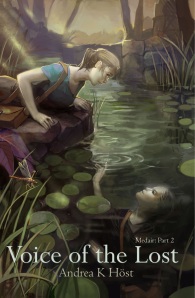 Smashwords / Amazon / Author’s Site
Smashwords / Amazon / Author’s Site
4/5 stars
Description:
Medair an Rynstar wants only to leave.
Five hundred years after the Empire she served fell before the Ibisian invasion, Medair has betrayed her Emperor’s memory by helping the descendants of the invaders. She knows she will be reviled, that to thousands she is hero-become-villain. Her one goal is to return to the hidden cave where she slept out of time, and hope that she wakes in a world where the name Medair an Rynstar has been forgotten.
Assassins, armies, and desperate magic complicate Medair’s plan of escape, leading her inexorably to face the very people her choice has cost the most. She has learned that you can never return to your past, or run from the consequences of your actions, but can she find a way to live in defeat?
Review:
Voice of the Lost is the perfect sequel to The Silence of Medair. The first book is a political fantasy that’s epic in scope, and Voice continues to develop the themes of colonialism, empire, and sacrifice and a controversial romance is set in motion. Medair chooses to side with the descendants of her invaders while facing an oncoming apocalypse brought on by wild magic. Talk about raising the stakes!
I loved this book, and it has the strengths of The Silence of Medair, but with a slightly different focus. It’s still character-driven, but there’s less brooding introspection and more political intrigues. Medair is thrust in the midst of a war and makes tough choices, possibly earning her place as a villain in history. What makes it interesting is how she deals with it, and how she views heroism, sacrifice, and ethics in herself and the colonizers. Medair’s character development is one of the best I’ve seen in the fantasy genre.
I must commend the author for how she handles magic in the world-setting. Magic systems are best explained in some books, while in others, it’s best left as a mysterious force of nature–whichever helps the suspension of disbelief. Höst treats it as the latter, and it works. Magic is a messy thing in this world–it merges parallel worlds, triggers a looming apocalypse, and even changes people’s ethnicity–which is a big deal in a historical reality of heated colonizer vs. colonized dynamics. While those are all crazy, its believable because the emotional consequences for the characters are so real, and that’s the key achieving verisimilitude in fantastical literature. I don’t know how the author pulled it off, but she deserves mad props.
With sacrifice as a key theme, it mostly reads like a tragedy. Whenever I cheered for the small victories, things became infinitely worse, but none of it came off as melodramatic. I was on the verge of tears in some parts, unable to decide whether it’s best to read on (and feel that screwdriver to the chest) or put the book down (and be unable to think of anything else!).
Medair’s internal dialogue sometimes summarizes what just happened and her reaction to it instead of only the latter, and it’s a little redundant. But other than that minor quibble, there’s nothing I’d change about the book.
It’s rare to find an epic fantasy that’s ambitious in scope and yet ties the story together succinctly. There’s no filler subplots or unnecessary scenes, it hits hard but ends with a satisfying conclusion. The story is emotionally involving and deals with heavy themes, but it’s worth it. I highly recommend this duology if you’re looking for an epic fantasy that’s character-driven, different, and thought-provoking.
You might like this if you like…
Epic fantasy with no filler; epic apocalyptic scenarios; fantastic character development; intelligent themes that you’ll ponder on long after you’ve read the book
If you’re interested in reading this two-book series, you can also purchase it as a single volume on Smashwords or Amazon. It’s a better deal than buying each book separately.
You can also read my interview with Andrea K. Host.
Tritcheon Hash by Sue Lange (2011)
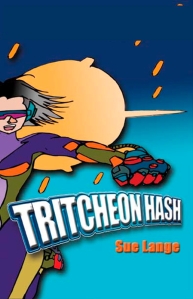 Smashwords / Amazon / Book View Cafe
Smashwords / Amazon / Book View Cafe
4/5 stars
Description:
Tritcheon Hash is a test pilot in the year 3011. She’s got it all: brains, guts, and a fast jet. But can she survive a mission to the most frightening place in the galaxy, the planet Earth?
Review:
Tritcheon Hash is a comedy with a funny take on both space opera and feminist science fiction. Tritch lives in the all-female planet, Coney Island, as women left Earth in the 22nd century from rising levels of violence. Coney Island is a lesbian vegetarian commune utopia (which is cozier and more suburban than the one in The Female Man), while Earth has gone on with its wars, environmental degradation, and carnivorous ways. There has been minimal contact between the two planets aside from an annual baby exchange, where the Coney Island representative would hand over the boy babies in exchange for fresh-frozen sperm. But there’s been talk of reunification, and Tritch is sent to spy on the Earth men.
It’s not the kind of book that had me laughing out loud, but I grinned with every page. Tritcheon Hash pokes fun at space opera and gender tropes, but it does so in a good-hearted fashion, with the kind of humour that comes from love of the genre, comparable to the way the movie Galaxy Quest plays with Star Trek.
The flippant prose zips through pseudo-technical jargon in deadpan (“The lighterator wouldn’t be fully tested until she got into space, but it had to be checked off now, as later would be too late. Obviously. No sense in flying off into the wide-open vacuum if the ol’ lighterator couldn’t lighterate. Right?”), reveals Tritch’s midlife crisis with her socialite wife, and makes note of Earth’s strange creations (such as their leather composite food utensils—“Tiny bits of animal parts are compressed and glued together. Like how sawdust can make particle board.”).
Here’s a further taste of the book’s wisecracks:
To prepare mentally for her upcoming trip to the other side of the Haze, Tritch took a couple of sessions with a hypnotherapist. She programmed Tritch to be able to recall everything she’d be experiencing in case she lost her pad and paper, and the subcutaneous black box recorder installed when she’d first been licensed as a test pilot failed. Then a separate therapist programmed her to forget all the stuff she’d been programmed to remember in the event she found herself interrogated by an enemy. Only a secret password would bring it all back to her. They wrote the password out in longhand, base 5, superscript cipher, on a piece of muffin wrapping paper in invisible ink, backwards, so you could only read it in a mirror, and only if a candle was placed beneath it. The password was then locked in a safe, which was plunged into five-square-feet of wet plastoset that, when dry, was guarded by a couple of six-foot-tall plants known as Penis Fly Traps.
The quirky humour propels the story forward, but when it switches gears to its character-driven conflict, it’s surprisingly touching. Who knew that a test pilot’s midlife crisis could be so heart-wrenching, when her grand mission-of-a-lifetime brings her further away from her family? It’s the kind of conflict that doesn’t sound very exciting when I try to explain it, but when I read it, it felt like a punch in the gut (in a good way). Lange balances the comedic and serious aspects of the story excellently, and the contrast adds to the story rather than detracts from it, and I must praise her skillful writing. My only criticism is that sometimes the POV threw me off. It occasionally breaks away from third-person limited, but it makes sense with the playful prose style and intertextual quips.
I highly recommend Tritcheon Hash to sci-fi readers, as long as one expects a space opera comedy rather than a space opera adventure. Read the sample first to see if the humour is up your alley.
You might like this if you like…
Feminist science fiction, humour, lesbian commune utopias
If you buy the book from Book View Cafe, 95% of the profit goes directly to the author. Support the book co-op!
Tritcheon Hash was also listed on Kirkus’ Best Indie of 2011.
If you want to learn more about the author, you can follow Lange on her blog and on her Twitter.
Bianca: The Silver Age by Jeff Pearce (2011)
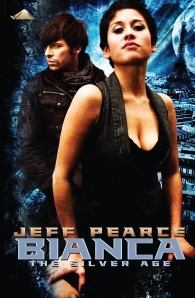 Smashwords / Amazon / Barnes and Noble
Smashwords / Amazon / Barnes and Noble
4/5 stars
Description:
It’s the Age of the Paladins, the age of the so-called “Vigil-ebrities” who fight crime and protect the innocent as the world tries to recover from economic collapse. And on the streets of Bohemia, Bianca is trying to find answers to her unique chemistry. She’s a succubus, forever trapped in a cycle of lust and violence that affects her very survival.
But when she looks into the murder of a chemist responsible for the latest addictive gel, the trail leads to exotic cities, new allies and sinister criminal enemies, and a corporate conspiracy that threatens everyone on Earth. By the end of her journey, Bianca will join the ranks of the most famous Paladins in the world: Orson Hawkwood, the leader of Defenders Without Borders, the enigmatic Clerfayt, detective avenger of Paris, Thelonius Minh, the peculiar “shrink to the stars” and master of combat yoga and the creepy, disturbingly powerful Plague Man.
Enter the Silver Age and join a unique heroine on her first exciting quest!
Review:
Bianca: The Silver Age is a sexy piece of superhero fiction. Bianca is a bisexual succubus, stalking through the streets of Bohemia in hakama pants and a bolero jacket with nothing but a bra beneath. She has super strength, healing powers, and shapeshifting abilities, and she’s on the quest to unravel a corporate conspiracy to find the truth about her origins.
I adore the world; it’s best described as an urban fantasy that takes place in the future. It’s enchanting and cosmopolitan, and this is reflected in both the prose style and the characters. One noteworthy superhero is Orson Hawkwood, who is essentially a cooler Bruce Wayne if he were a famous tech and PR savvy journalist:
Millionaire philanthropist. Muckraking reporter and blogger. Paladin. His working clothes had become almost a signature uniform: the light linen suit with the classic suspenders, the double hourglass of the bowtie never tied around the open collar, as if he were fresh from a formal dinner party.
He’s also in charge of Defenders Without Borders, an organization of “doctors, nurses, lawyers, child psychologists and social workers—all trained by the UN before its collapse—made up a task force of muckraking reporters and investigators.” And these Defenders run around in understated 1920s business suits. I don’t know about you, but I’d take them over Bat Family any day.
Another strength of this book are the links it makes between the criminal and the political. When their investigation leads them to Sudan, Orson resists involvement in internal politics. A local superhero, the Bandit Queen, criticizes him. “Same old Orson. You think you can show up, blow a police whistle and go after a mugger while the real pirates go merrily on with business.” It’s refreshing to see these concepts explored so courageously.
I have a number of criticisms. I was skeptical of the alchemy science (magic) in this book. Magic systems don’t need to be elaborated with overwhelming detail (in most cases, under-explaining is better than over-explaining). I didn’t find the alchemy-related explanations believable and yet they affect large portions of the plot. It sometimes felt arbitrary and it took me out of the story. Bianca’s motivation for her quest could have been more convincing, and it was difficult to follow the investigation—hampering the reading experience.
My favourite part of the book was the beginning when Bianca works solo while meeting the other heroes. Unfortunately, when she begins to work with them, she is often overshadowed by her colleagues. It she didn’t lose out in the superpower lottery and she’s good at beating up the bad guys, but much of the progress of the investigation depends on the deductive skills of others—and she ends up playing an oddly passive role for a book named after her. There’s nothing wrong with that dynamic if this is about a superhero group, but this book is supposed to be focused on her, and she should have sat in the driver’s seat more often.
While Bianca is seductive in some ways, it was an uneven experience and I wasn’t captivated by the main storyline. It’s not the greatest read, but the promising world-setting and the ideas that it explores within the superhero genre makes it stand out. I recommend it to readers who value innovative concepts over a tight plot, and can suspend their disbelief for the fantastical pseudo-science that often comes with superhero fiction. I’d consider checking out the sequel coming out this year.
You might like this if you like…
Highly original superhero fiction, urban fantasy, bisexual succubus action girls, sensual scenes, unique cosmopolitan settings
This is the third book I’ve reviewed by Jeff Pearce, after Reich TV and The Karma Booth.
The Weight of a Crown by Tavish Kaeden (2011)
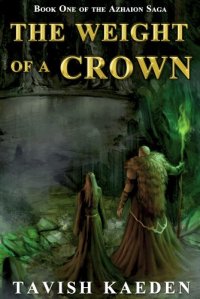 (Smashwords not available) / Amazon / Author’s Site
(Smashwords not available) / Amazon / Author’s Site
3/5 stars
Description:
THE WEIGHT OF A CROWN
Thousands dream of it; still more die for it. Yet, how many can truly bear it?
After centuries of bitter conflict the realm of Esmoria is at last united under the banner of a single king. On the surface the realm appears to be enjoying its first taste of peace, but lingering resentment and the untimely death of the new ruler threaten to return Esmoria to political chaos.
Meanwhile, in the farthest reaches of the frozen north, a dethroned monarch’s plot for revenge awakens a long-forgotten evil. As darkness and treachery descend upon the realm, a young escapee from a forced labor camp, a disenfranchised soldier, and an epileptic engraver’s apprentice find themselves at the heart of the troubles.
Review:
If you’re looking for an epic fantasy of a respectable doorstopper length, look no further–The Weight of a Crown clocks in at 670 pages. The chapters alternate between characters on opposite sides of a continent-spanning conflict: a young woman who escapes from a forced labour mining camp, a regent who desires to leave the court and become a woodsman again, a warrior whose pair of cursed daggers transforms his fighting skills from mediocre to god-like, and an epileptic apprentice who discovers that he could channel his energies into magic.
I liked the diversity in the characters’ backgrounds, but I felt like their personalities were lacking that extra punch. Not a single character shows humour, irony, or sarcasm—those bits of colour that regular people take part in to make life tolerable. Instead, all the characters play their roles within narrow parameters. This would have been a richer world if the characters expressed a fuller range of emotions and cracked a dirty joke once in a while. Unfortunately this made me unable to connect with them on a deeper level.
Kaeden’s deliberate but fluid prose immediately immerses you into the world, and the situations that the characters face are interesting. There’s court intrigue, gladiator-style fights, medieval drug cartels, demon creatures with mind control powers via orifice invasion–you name it. For the most part, it feels like reading four unrelated stories, but at the 75% mark, they come together in an surprising way. Their individual plots start connecting into the larger political conflict–making for a promising sequel.
But the reason why I can’t give this book four stars is that this volume is essentially one massive set up for the next book. I know that comes with the territory of epic fantasy, but The Weight of a Crown feels flat somehow. While a lot of things happen, it’s difficult to judge how important some developments are when the big picture is still being woven into place. It didn’t help that I couldn’t get emotionally invested in the characters. So when they were nearly assassinated, or chucked out of their kingdom, or mind-raped by a parasitic demon creature, I just shrugged.
If you’re looking for something easy to read to pass the dreary winter nights, this is a good choice, but I can’t say this is a standout epic fantasy. I’m still interested to see where Kaeden takes the story because he’s working with excellent ingredients and damn, the plot is about to go places. It could be the beginning to a great series once the characters are injected with more colour and the plot starts to really thicken.
You might like this if you like…
Shades of grey fantasy factions (no side is evil–there’s only evil individuals); chapters that jump between characters on opposite sides of the conflict
The next book in the The Azhaion Saga is not out yet, but make sure to check out Tavish Kaeden’s website for announcements.
High Society by Paolo Chikiamco and Hannah Buena (2011)
4/5 stars
Description:
Take your first step into a world of automata, magic, and alternative history! The year is 1764, and, for the first time in nearly two centuries, the Spanish forces have been repelled from the great walled city of Manila. While the Spaniards are quick to lay the blame at the feet of the invading British and their clockwork machines, the secret to the success of the Filipinos may lie closer to home, with an ally that is both ancient and new, mythical and mechanical. “High Society” is a stand-alone steampunk comic book in the “Wooden War” series.
Review:
High Society is an excellent start to a steampunk comic series set in Spanish colonial era Philippines, an alternate history take on the struggle for independence. The issue is in black and white and only 24 pages long, but it’s packed with adventure, creative world-building, and an inspiring spirit.
Chikiamco’s 18th century setting weaves together steampunk and Filipino mythology in an innovative way, but it’s not done for novelty—they’re part of the post-colonial themes that the series promises to explore. It’s not post-colonial merely in the strict historical sense (in the fight against Spain), but it’s also about reclaiming a people’s humanity and self-determination.
Did you know, that before the Spanish arrived, we had a goddess of lost things? I wonder if everything we’ve ever lost is still out there somewhere…
When the Carpenter whispered that line, my eyes welled up. The last time I had that emotional reaction to a comic was in The Watchmen, during the final conversation between Doctor Manhattan and Laurie Juspeczyk. Maybe High Society has such a strong tug on my heart strings because I am both a Filipina and an immigrant, but I’m confident that readers of all backgrounds will find the characters and their aspirations compelling.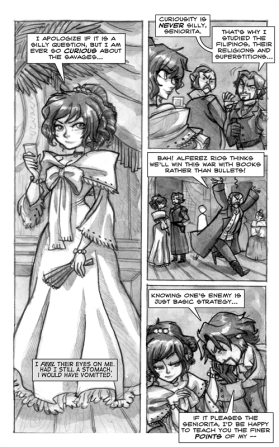
Rita is an intriguing heroine, skilled at both courtly intrigue and whoop-their-ass action. It’s delightful that the story is told from her point of view, clearly illustrating how she feels about the Spanish. I’d love to learn more about her.
The comic does a good job of immersing the reader in the setting while still keeping it accessible for readers who aren’t familiar with the Philippines. I love details like the use of Filipino sound effects (e.g “bog!” instead of “wham!”). There are a few Filipino and Spanish terms thrown around, but they’re not used excessively, and you’d be able to infer the meaning from context. What non-Filipino audiences would need some getting used to is the mythology, but that’s what Wikipedia is for. There’s a mini glossary of terms at the end, which is helpful, but not necessary to enjoying this wonderful issue.
Buena’s art is expressive and dynamic, with a subtle manga influence that makes everything extra adorable. It has a bit of of a sketchy feel because some of the pencils are visible, but it I think it’s aesthetically pleasing. I’m not an expert on comic art, but there were a few panels that would have benefited from more value contrast. The art is bursting with life, the composition is great, but there’s a lot of detail which sometimes overwhelms the primary action. Using more contrast would help the reader figure out what to focus on. That’s my only teeny nitpick.
Also, a technical consideration, the Kindle version of the comic is meant to be read for e-readers/tablets with higher resolutions than the Kindle 3. Sample it first to see if you’ll find it readable on your device, but I had a better experience just reading it on my computer.
High Society is a rich alternate history adventure with a dose of post-colonial badass. I’m eager to read the next issue coming out in May 2012!
Other reviews of this comic: One More Page
You might like this if you like…
Steampunk; historical fantasy; mythology and folklore; post-colonial badass
Paolo Chikiamco is a busy chap! Other than being a spec-fic writer, he also runs Rocket Kapre, an independent publisher of speculative fiction from the Philippines. There’s actually a short story anthology coming out this week called Alternative Alamat, featuring contemporary fantasy writers retelling Philippine mythology. Yes, it’s coming out in ebook form, and it’s definitely worth a look.
You can listen to a podcast interview with Paolo about this comic and other projects on Charles Tan’s blog.
FYI: Charles Tan is a famous spec-fic blogger with SF Signal, and has worked hard to put Philippine spec-fic on the map. There’s lots of fascinating stuff coming out of that community. I’m so glad that the ebook revolution is here!
Voice by Joseph Garraty (2011)
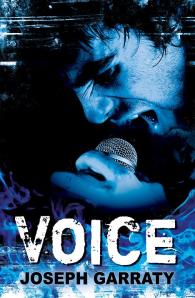 Smashwords / Amazon / Author’s Site
Smashwords / Amazon / Author’s Site
5/5 stars
Description:
Local rock band Ragman is finally taking off. Stephanie Case’s flamboyant performances and scorching guitar work have started attracting crowds, and singer John Tsiboukas–aka Johnny Tango–is delivering the best performances of his life. After months of playing to dead rooms, it looks like success is at hand.
The thing is, there’s something wrong with Johnny’s voice. Until just a few weeks ago, he couldn’t hit the right pitch if you painted a target on it and let him stand real close. Now he sounds amazing. . . and strange things happen every time he sings. Lights burn out. Whole rooms become cold and hushed. People get violent.
For Johnny and Case, Ragman is a ticket out of a life of meaningless, dead-end jobs and one lousy gig after another, but as the weirdness surrounding Johnny begins to turn into outright nightmare, they find that the price of stardom might be higher than either of them could ever have imagined.
Review:
Voice is a supernatural horror novel that follows a rock band from obscurity to fame, with bits of gore trailing the way. It’s terrifying, tragic, and freaking amazing.
It’s an absorbing and intense read from cover to cover. The musician who makes a pact with the devil at the crossroads is a well-known rock and roll myth, and the horror elements themselves aren’t unique, but Garraty’s delivery is pitch-perfect and will make your hair stand on end. The author masterfully executes the classic “less is more” approach to horror, letting your own paranoia fill in the blanks and scare you shitless.
What makes it great is that the supernatural horror blends into the setting naturally. The creep with thinning hair at the back of the dive bar could be either a man with unfortunate features or a demon creature out to disembowel you. I was glad that I didn’t read some scenes in public because they made me scream like a crazy person. You know that time when you watched Alien for the first time and didn’t see that chestburster coming? Yeah. That.
The everyday tribulations of being a musician are convincing and immerse you into the character’s lives. I loved details like when Case, the lead guitarist, explains to someone that their band wasn’t hard rock like Nickelback but more like the New York Dolls or Motörhead, she’s promptly met with a blank look. Garraty is as much an expert in music as in horror, and has a way of fleshing out details without overburdening the reader with obscure trivia.
I could go on and on about why I love this book, but I definitely must praise Voice for the characters. Everyone’s fascinating with great internal conflict, adding layers to the plot. There’s illicit relationships, band drama, and the daily struggle to prove their worth to themselves. Heck, even the minor bit characters are intriguing too, and I wished there was more uncovered about them!
The entire line-up is strong, but two characters steal the spotlight. Case is a fantastic heroine, a no-bullshit woman in a macho scene. While she walks around in leather pants and knows Krav Maga like nobody’s business, she’s a multidimensional tough dame and not merely a caricature of one. You could call her the spiritual successor to Ellen Ripley.
But Johnny’s internal conflict–that’s main star of the book. Johnny, Johnny, Johnny. What do I do with you? Every time I read a chapter in his POV, my heart soared or twisted itself in sympathy. He’s the lead vocalist whose talents are unremarkable compared to the rest of the band, and it’s his hunger to prove himself which leads to the pact with the devil. No matter what the reader thinks of his choices, deep down, you feel that you would same thing. It makes the story even more chilling, and that is the mark of an outstanding horror novel.
As Johnny would scream to the audience between his Elvis sneers, “Is it hot enough for you, motherfuckers?” Yes, it is motherfucking hot. Read it.
You might like this if you like…
Horror; rock and roll; a motherfucking good book
While you’re checking out Voice, don’t mind me, I’m just rocking the fuck out since this is one of the rare times when it’s appropriate to imbed Motörhead in a book review. Don’t get too lost in the rapture of rock and roll though, because dreadful otherworldly creatures are out to devour your soul.
Zoo City by Lauren Beukes (2010)
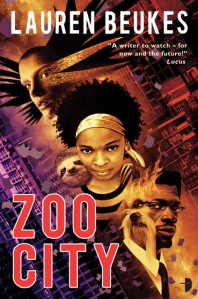 Angry Robot / Amazon / Author’s Site
Angry Robot / Amazon / Author’s Site
4/5 stars
Description:
Zinzi has a Sloth on her back, a dirty online 419 scam habit – and a talent for finding lost things. But when her latest client, a little old lady, turns up dead and the cops confiscate her last paycheck, she’s forced to take on her least favourite kind of job: missing persons.
Review:
Zoo City is an urban fantasy set in South Africa. Just when you thought that everything’s been done with animal familiars, Beukes adds an interesting social dimension to it. After a rapture-like event, people who have committed major crimes (dubbed as zoos) began to appear with animal familiars.
The truth is we’re all criminals. Murderers, rapists, junkies. Scum of the earth. In China they execute zoos on principle. Because nothing says guilty like a spirit critter at your side.
Zinzi is a former journalist turned 419 scammer and lost-stuff-finder to pay off her old drug debts. Her magical ability is finding lost things, but after the death of her client, she ends up uncovering the dark histories of characters in the music biz, while trying to figure out a pattern to the unexplainable zoo serial murders.
Urban fantasy and crime noir often bond over the same whisky bottle, drinking it out of a paper bag while hanging out at an abandoned train station, and you can’t get grittier than Zinzi in the zoo slums. The world-building is creative and the setting feels authentic. Beukes throws in details like how a traditional psychic in the healer market sports a top with a D&G logo (so subtle that it could be the real thing) and waggles a brand new iPhone. And the prose is as hardboiled as it can get: “The tea tasted like stale horse piss drained through a homeless guy’s sock, but I drank it anyway.” I’m a sucker for both noir and original fantasy settings, and Zoo City excels on both fronts. This book is worth reading for the world-building alone.
The magic system is unique with enough context to make it believable, but also enough mystery to give it that chilling edge of the supernatural: “All it takes is one Afghan warlord to show up with a Penguin in a bulletproof vest, and everything science and religion thought they knew goes right out the window.” And zoos are pretty creepy to other people, because they are former (or current) criminals and there is no rigorous way of documenting their magical abilities. In fact, many zoos hide their real abilities from the government if it could get them into trouble.
While this book has a lot of strengths, its weakness lies in the plot and pacing. The plot is interesting, but it’s not a page-turner and the pace is actually quite slow. There’s a lot of funny moments and slices-of-life sections that flesh out the very intriguing protagonist, but there isn’t much progress on the main investigation until the last 20% of the book. I loved the plot twists and the surprises, but it all happens suddenly towards the end.
Zoo City isn’t the most riveting crime thriller, but its highly recommended for the innovative world-building.
You might like this if you like…
Urban fantasy + South Africa + crime noir; the grittiest setting ever; animal familiars; bits of journalistic pieces (including hilarious tabloid journalism) interspersed throughout the text, breaking up the hardboiled prose; one of the most unique fantasy novels of the 21st century
I received this book for free from Angry Robot Books because I did a nice thing and donated to the World SF Travel Fund. I don’t think Angry Robot cares that I wrote a book review, since it has already won the 2011 Arthur C. Clarke Award. But dear readers, now you know why this book in its various forms gets plugged everywhere, because it is a darn good read.
Morgan’s Choice by Greta van der Rol (2011)
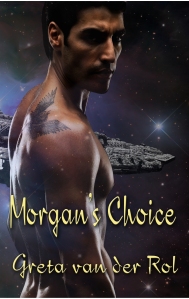 Smashwords / Amazon / Author’s Site
Smashwords / Amazon / Author’s Site
3/5 stars
Description:
He will use force if necessary to remind her of her place…
Autocratic, aloof, Admiral Ravindra wants to use the strange alien female and her gifts in his battle against an unknown force threatening to annihilate his worlds. Born to rule, a man of wealth, power and privilege, he will have what he most desires.
She will use courage and independence to carve a new future…
Morgan Selwood is a Supertech, bioengineered from birth to stand against the horrors of the Cyber Wars. Her abilities and appearance are the stuff of legend, exactly what the resistance needs to throw off the yoke of millennia of oppression. Caught in the crossfire Morgan must choose sides.
Together they will face a threat beyond imagining.
Review:
Cyborg meets alien admiral; space opera meets romance. This results in an awesome premise with twice the pulp, as if the half-naked guy in front of a spaceship didn’t already spell that out for you. There are space battles, insurgent separatist movements to throw off the yoke of a caste system, and sexual tensions of the you’re-hot-but-you’re-kinda-the-enemy! variety. Morgan’s Choice has the makings of an action-packed space opera adventure (with all kinds of action).
The prose is slick and easy to get into, and the story wastes no time in piling up the conflict. Morgan finds herself being used for the military and political factions of an alien world, because her Supertech abilities make her a powerful weapon. She can compromise security systems, fly enemy spaceships, and pretty much hack everything. But it’s difficult for her to figure out which side she should be on, especially when things heat up with the Admiral.
The repulsion-attraction dynamics between the two are well-done and manages to avoid major unfortunate implications, which is important given that Morgan’s a prisoner and the Admiral comes from a super patriarchal society. Van der Rol writes Morgan well as a resourceful heroine doing her best in an unpredictable environment. I really enjoyed the first half of this book and would give it a solid 4 stars.
Unfortunately, I don’t think that the final portion is as strong. The antagonists are underdeveloped, the chase sequences feel lacklustre, and the world-building around the Supertechs could be clearer. Why could Supertechs only reproduce with other Supertechs? What are the limitations on a Supertech? Morgan’s special abilities are treated like magic without a cohesive rule system. I didn’t have a problem with it early in the book, but as the story went on without these abilities being explained and the Rule of Cool lost its effect, my suspension of disbelief drifted away.
My final criticism is that the romance becomes dreary in the absence of richer character development. One of the most interesting tensions is Morgan’s romantic feelings for the Admiral versus her dislike of his arrogance and being a product of a very repressive and patriarchal culture. This gets resolved, but not in a way I found impressive, because it relies on a formula romance resolution which trivializes the conflict. I think romance readers who want a tidy ending would be satisfied, but I was looking for something more.
If you’re looking for a space opera/romance adventure, Morgan’s Choice serves up some fast-paced pulp, but don’t expect much else.
You might like this if you like…
Action-packed space opera; planetary romance; racing and chasing; cyborg hackers
Readers interested in Morgan’s Choice should check out the author’s other sci-fi books, as they seem to be same vein of space opera crossed with romance.
